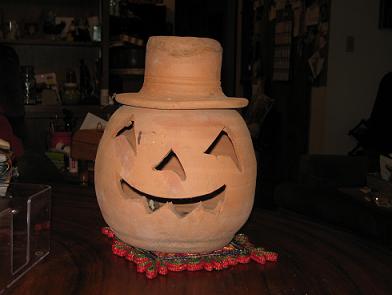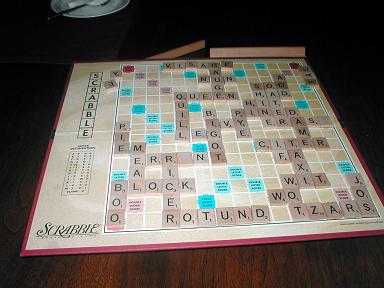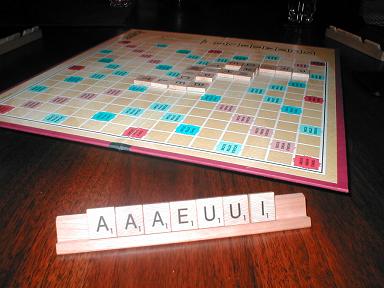This week (March 16 through March 22) is Spring Break1 for both the college and schools2 here in Pella. What are people doing with their free time? I find the answer to this question quite interesting. Most of the ones I know are not taking the trips to exotic3 beaches and islands like those which are shown in movies or on TV. Instead, they are doing work of some type.
My daughter Kim works for the Pella public schools so she has the week off4. Today she has worked very hard catching up on5 doing laundry, taking cans to the recycling center6, sorting through7 books that we plan to donate to the public library, and also sorting through older clothing, which we plan to donate to the Goodwill Industries8 for use by people who have very little money. Tomorrow we will take them to the big donation center in Des Moines. When some of Kim’s friends heard that we plan to go there tomorrow, they asked if we would take some things for them, so we aren’t the only people collecting things to donate. Another one of Kim’s friends, who is a teacher of Spanish language at the college, is working on writing his dissertation9 this break. He told another friend that he would like to go bicycle riding today, but she told him he should stay home and write. If he does that, he can go out for Mexican food at the Mexican restaurant here this evening. Otherwise he should stay home.
Speaking of going out to ethnic10 restaurants, Kim and I will meet some friends at a really nice Japanese restaurant in Des Moines tomorrow evening. I am really looking forward to it because I like Japanese food very much and none is available here in Pella. I especially like shrimp and vegetable tempura11, and I haven’t had any for a long time.
Another person I know is taking a test for the first stage of getting her driver’s license today. She has to take a written test first and then she will be allowed to be instructed. I hope all has gone well for her. She is being taught the actual driving by another professor who is staying in town for Spring Break. This is a good time for learning such things, I guess. The college parking lot is about a block away from us behind our house, and a young man is obviously learning to ride a motorcycle out there this afternoon. I believe that someone else is taking instructions today. Our local airport is about a mile from where we live, and someone must be taking a flying lesson this afternoon, as a small plane keeps taking off, circling the area, and landing again. Obviously Spring Break is a very good time for special lessons.
Do I know anyone who is traveling to another country this week? Well, yes, I do. Fifteen members of the church that Don and I attend have gone to Haiti to do some volunteer work. Haiti is a very poor nation, so these volunteers have gone there to help build houses and also a school. They also took large bags of rice to give to some of the poorest people. This is a very good type of volunteer work, I believe. Most of the people who went there are either teachers or have the type of jobs where they could take time off this week. I’ll write another blog about some of the popular types of volunteerism at a later time. Meanwhile, I just want to remind you that despite the stereotype12 given you by Hollywood, Spring Break is probably quite the contrary for most people.
1. Spring Break: a period of time, usually a few days about halfway through the semester when there are no classes in U.S. (春假).
2. schools: a collective term for both public and private elementary and secondary
schools in a given area (中小学,包括当地的公立和私立学校).
3. exotic: referring to unusual, usually attractive places one may wish to visit (奇异的,异乎寻常的)..
4. off: not at work (休息)
5. catching up on: doing necessary tasks which have been delayed or put off from before because of the lack of time, or from other interests (把积压的……做完).
6. recycling center: a place where waste items such as paper, metal, etc. can be returned for reuse of materials (废物回收利用中心).
7. sorting through: examining items, such as books or clothing to see whether one wishes to keep them or to give them away (查找,翻检).
8. Goodwill Industries: a charitable organization which collects used, but still usable clothing for redistribution or sale to economically poor people (慈善业,慈善组织).
9. dissertation: a written report required to meet the goal of an advanced degree such as a Master’s degree, or a PhD degree from a university (博士或硕士论文).
10. ethnic: a specific cultural or racial group with specific differences from other groups, i.e. Spanish, Chinese, Mexican, etc. (种族的,民族的).
11. tempura: a Japanese food in which vegetables, shrimp, or other food items are coated in a batter and deep fried to form a thin crust on the item as it is cooked (面拖油炸食品,一种日本食物,有蔬菜,虾等).
12. stereotype: a belief or idea of what a particular type of person or thing is like (模式化的思想).



